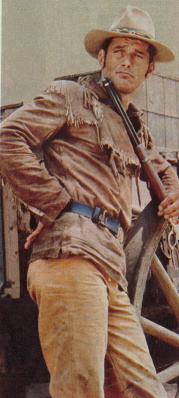The Enduring Legacy of John Wayne in American Cinema

Introduction
John Wayne, often hailed as one of the greatest movie stars in American history, epitomises the rugged individualism and heroism of the American Western genre. With a career spanning several decades, Wayne’s films have not only shaped the Western genre but also left an indelible mark on the culture of the United States. His unique on-screen presence embodies an idealized version of masculinity that remains significant to this day, making the study of his life and career relevant in discussions of film, history, and American identity.
Career Highlights
Born Marion Robert Morrison on May 26, 1907, John Wayne began his film career in the silent era, eventually rising to prominence in the 1930s. His breakout film, ‘Stagecoach’ (1939), directed by John Ford, established him as a leading actor and a symbol of the Western hero. Throughout the 1940s and 1950s, Wayne starred in a series of classic films, including ‘The Searchers’ (1956) and ‘True Grit’ (1969), the latter earning him an Academy Award for Best Actor. His performances often featured a staunch, stoic demeanor, making his characters memorable and relatable.
Significance in American Culture
Wayne’s persona transcended the screen, influencing societal views on masculinity and American ideals. Although his roles primarily depicted traditional values, they also sparked conversations regarding patriotism, heroism, and the American frontier’s complexities. His portrayal of characters who embodied strength and resilience resonated with audiences during pivotal moments in American history, including World War II and the post-war era. However, Wayne’s legacy is not without controversy, as his political views and personal beliefs often sparked debate about their impact on his cinematic legacy.
Recent Celebrations and Commemorations
In 2023, alongside the 50th anniversary of his passing, various film festivals and retrospectives have celebrated Wayne’s contributions to cinema. Institutions like the American Film Institute have hosted discussions and screenings highlighting his filmography. These events serve as a reminder of Wayne’s complex legacy, offering new generations a chance to engage with his work and its cultural relevance.
Conclusion
John Wayne remains an iconic figure whose influence on film and American culture is undeniable. His roles continue to inspire filmmakers and actors alike, while his legacy prompts discussions about identity, representation, and values in cinema. As new audiences discover his work through classic film festivals and streaming platforms, Wayne’s status as a cultural icon seems assured to endure, keeping his spirit alive in the hearts of film enthusiasts worldwide.









